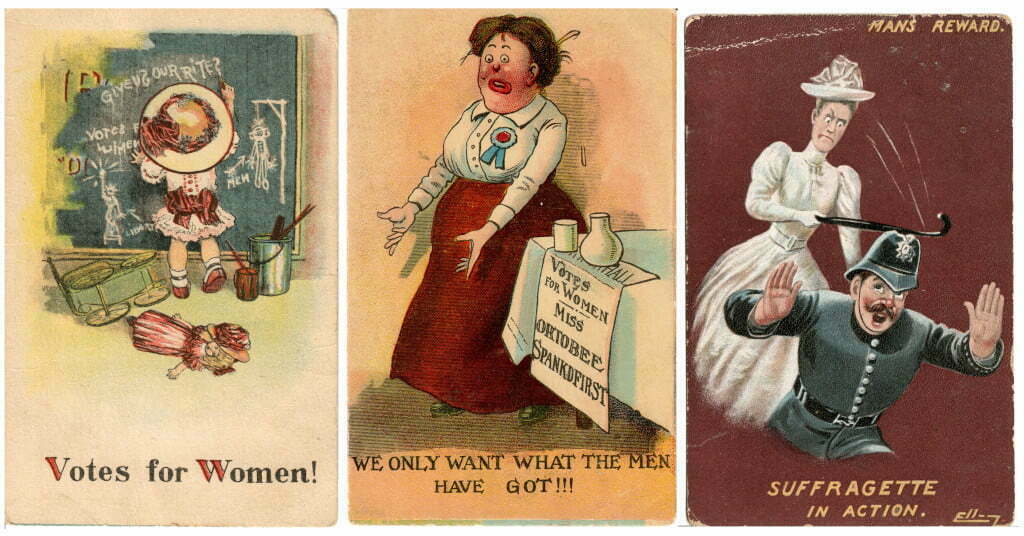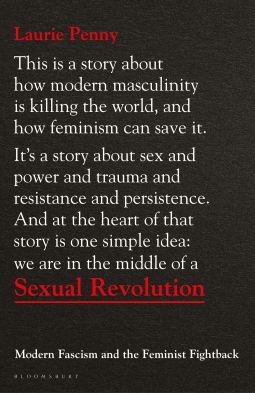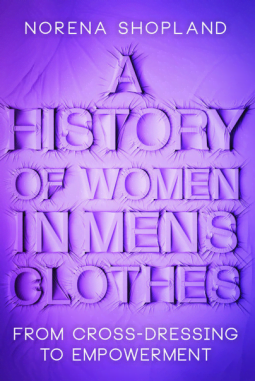
This is the best book on practical feminism that I've read. Because it is long out of print, I had to get the British Library to pull this book out of the archives for me. I'm fascinated by the evolution of feminist discourse in 20th Century UK. I read Myself When Young (1938) which is a series of mini-autobiographies of prominent women. One of them was Dame Caroline Haslett - an electrical…
Continue reading →

Either I'm particularly thick, or this is the most over-written and under-explained academic claptrap I've read in some time. Some of the language is pure poetry: the boundary between science fiction and social reality is an optical illusion It doesn't actually mean anything. You have to be able to parse unexplained concepts like "an oedipal calendar" and deal with interminable footnotes…
Continue reading →

I'm not a paper fetishist. The smell of old books does nothing for me. But I'll admit to a slight sense of wonder when I held this 86-year old book in my hands. What is feminism? This is an out of print, and somewhat obscure, attempt to answer that question. Out of the shadow of the Great War and barely a decade after universal suffrage in the UK, one woman decided to catalogue the…
Continue reading →

Did you know that a Suffragette invented the UK's electrical plug? Dame Caroline Haslett was an electrical engineer who foresaw the way that electricity could be used to remove domestic drudgery from women's lives. There is a slim biography of her, written by her sister, which is sadly out of print. Luckily, the book is available for free on Archive.org. It is a curious book. It dwells on…
Continue reading →

Due to a strange mix-up with an eBay order, I've come into possession of these rather quaint anti-suffragette postcards. I hope it is obvious that I am pro universal suffrage. What amuses me about these cards is how emotional they are! These aren't dispassionate arguments designed to calmly influence the rational man. It is all pure emotion! Looking through the archives of anti-suffragette…
Continue reading →

I had a weird experience in a previous job. As it is long in the past, I thought now was a good time to blog about it. I worked in a hip office. Everyone was trendy and right-on. It was a heavily female dominated industry and the office politics were biased towards intersectional feminism. Which I regarded as a good thing. I'd rather have a natter about reproductive justice than who won the…
Continue reading →

Every day, extraordinary inventions and innovative ideas are side-lined in a world that remains subservient to men. But it doesn't have to be this way. Instead, ingrained ideas about men and women continue to shape our economic decisions; favouring men and leading us to the same tired set of solutions. For too long we have underestimated the consequences of sexism in our economy, and the way it …
Continue reading →

Over a slightly boozy lunch, on a Mediterranean isle, the topic of Greek mythology reared its head. We segued into how those gods set the template for every modern story and superhero franchise. David, our somewhat taciturn companion, suddenly piped up "Of course, you really want to read Maria Tatar's take on Campbell's work." A few clicks later and the book was on my eReader waiting for me to…
Continue reading →

This is a story about how modern masculinity is killing the world, and how feminism can save it. It's a story about sex and power and trauma and resistance and persistence. It's a story about how you can track the crisis of democracy against the crisis of White masculinity, and how the far right is rising in response to both. It's a story about a social change. And at the centre of that story…
Continue reading →

Bomb-throwing suffragettes. The pioneer of the refuge movement who became a men's rights activist. Forget feel-good heroines: meet the feminist trailblazers who have been airbrushed from history for being 'difficult' - and discover how they made a difference. Here are their stories in all their shocking, funny and unvarnished glory. It is a cliché that well behaved women seldom make history. …
Continue reading →

A deconstruction of gender through the voices of Siri, HAL 9000, and other computers that talk Considering Star Trek, 2001: A Space Odyssey, Her, and more, Liz W. Faber explores contentious questions around gender: its fundamental constructedness, the rigidity of the gender binary, and culturally situated attitudes on male and female embodiment. Going beyond current scholarship on robots and…
Continue reading →

Traditionally, historic women have been seen as bound by social conventions, unable to travel unless accompanied and limited in their ability to do what they want when they want. But thousands of women broke those rules, put on banned clothing and travelled, worked and even lived whole lives as men. As access to novels and newspapers increased in the nineteenth century so did the number of…
Continue reading →











